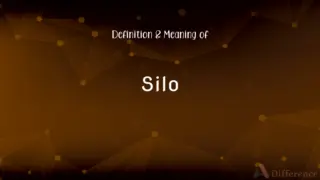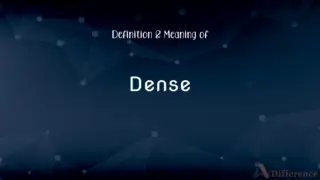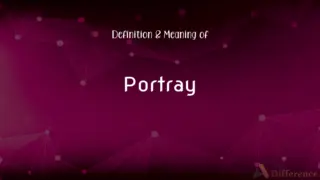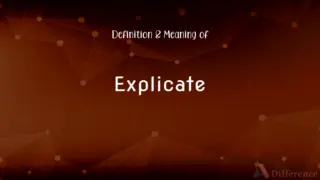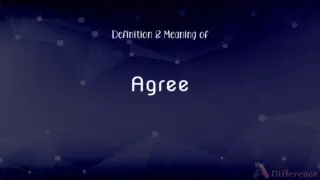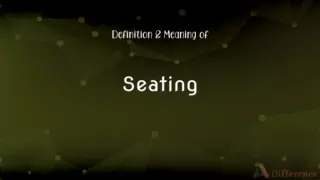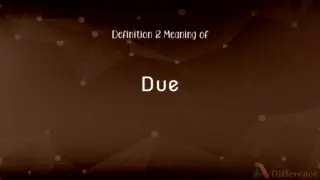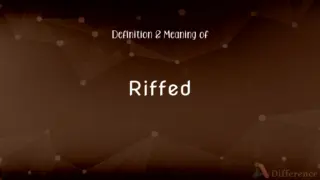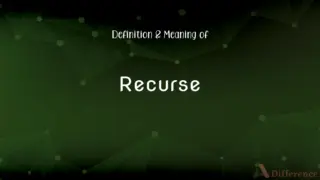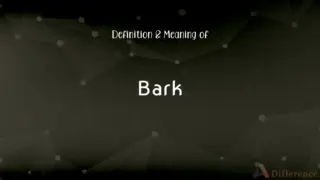Sleave Definition and Meaning
By Urooj Arif & Fiza Rafique — Updated on March 6, 2024
Sleave refers to untangle or separate out the threads of silk, or to ravel silk or other fine thread. e.g., She carefully sleaved the delicate silk threads before weaving.
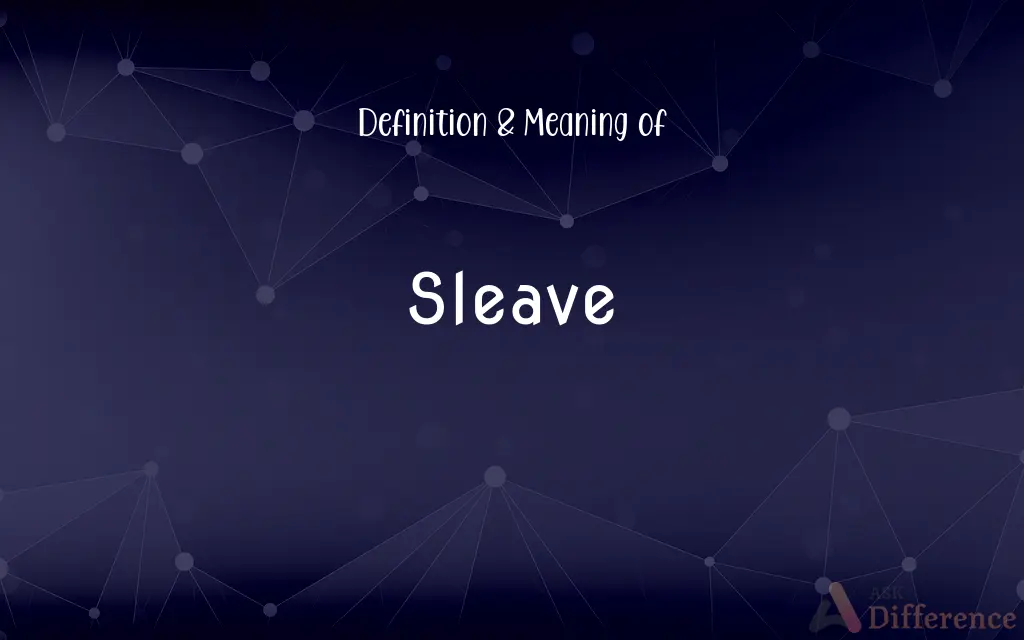
Table of Contents
Sleave Definitions
To unravel or disentangle fine threads.
With patience, she sleaved the knotted yarn.
To prepare threads by separating and smoothing.
The old loom required the threads to be sleaved by hand.
To separate silk threads for use.
The artisan sleaved the silk carefully for the embroidery.
To divide into strands or filaments.
She sleaved the fibers into finer strands for delicate work.
To disentangle or clarify complex matters (figuratively).
The lawyer sleaved through the complex legal documents.
To organize or sort out (figuratively).
He sleaved through the data to find the relevant information.
To make threads smooth and ready for weaving.
He sleaved the threads to prepare them for the loom.
To spread out or untwist threads.
Using a comb, she sleaved the threads to remove the tangles.
To tease out threads for spinning.
Before spinning, the wool must be carefully sleaved.
To comb out or dress silk.
The process of sleaving silk is essential for quality textile production.
A fine thread or skein of thread.
(weaving) To separate, as threads; to divide, as a collection of threads.
The knotted or entangled part of silk or thread.
Silk not yet twisted; floss.
The knotted or entangled part of silk or thread.
Sleep that knits up the ravell'd sleave of care.
To separate, as threads; to divide, as a collection of threads; to sley; - a weaver's term.
Sleave Snonyms
Disentangle
To free something from tangles or complications.
It took hours to disentangle the fishing nets.
Separate
To move or come apart; to put space or distance between objects.
He separated the twisted threads.
Clarify
To make a liquid clear by removing solid particles or to make an idea, statement, or situation less confused and more clearly comprehensible.
He clarified the broth by straining it.
Untangle
To make something tangled or knotted smooth and straight.
She took her time to untangle the yarn.
Unravel
To undo twisted, knitted, or woven threads.
He carefully unraveled the sweater to reuse the wool.
Smooth
To make or become flat or smoother by ironing or combing.
She smoothed the silk fabric before cutting.
Detangle
To remove tangles or knots from, especially hair or textiles.
She used a special comb to detangle her hair.
Loosen
To make something less tight or less firmly fixed; could be used metaphorically for easing tension in fibers.
She loosened the knots in the rope.
Ravel
To untwist or untangle or become untwisted.
She raveled the loose threads to prevent further damage.
Straighten
To make or become straight from a curled or twisted state.
He straightened the wires for the project.
Sleave Idioms & Phrases
To sleave one's way
To make progress by untangling or solving problems.
She sleaved her way through the legal documents to understand the case.
Sleave it out
To remove or untangle complications.
When solving the problem, it's best to sleave it out and start with the basics.
In a sleave
In a state of confusion or complication.
After the merger, the company's policies were all in a sleave.
Cut the sleave
To decisively remove complications or problems.
Sometimes, it's best just to cut the sleave and start afresh.
Sleave's end
The point at which a situation becomes too complicated to untangle.
I'm at my sleave's end with this computer issue.
Sleave through the mess
To navigate through a complex or chaotic situation.
He had to sleave through the mess to find the lost document.
A sleaved web
A complicated situation that needs untangling.
The plot of the novel was a sleaved web of mysteries and intrigues.
Sleave and conquer
To handle a situation by addressing its complexities.
The team's strategy was to sleave and conquer the project's challenges.
Tight sleave
A difficult situation that requires careful untangling.
Negotiating this deal is a tight sleave, given all the legal constraints.
Sleave's up
To prepare to tackle a difficult task.
With the deadline approaching, it was time to sleave's up and get to work.
Sleave the knot
To solve a particularly difficult problem.
It took hours to sleave the knot in the negotiations.
Sleave at first sight
To immediately start addressing problems or complications.
The consultant was known for his ability to sleave at first sight.
A sleaved tale
A story or explanation that is complex and difficult to follow.
His alibi was a sleaved tale that didn't convince the jury.
Sleave of hope
A small sign that a complicated situation can be resolved.
Finding the missing document was the sleave of hope they needed.
Sleave by sleave
To handle a situation piece by piece.
The project was complex, but by tackling it sleave by sleave, they managed to complete it on time.
No sleave unturned
To thoroughly investigate or explore every aspect.
The detective left no sleave unturned in searching for clues.
To sleave a path
To clear up confusion or obstacles.
The mediator was able to sleave a path towards an agreement.
Sleave of contention
The central issue within a complex problem.
The budget was the main sleave of contention in the negotiations.
Sleave the way
To lead by resolving complexities or difficulties.
Her innovative ideas sleaved the way for the company's success.
Under sleave
Hidden complexities or difficulties.
The contract seemed straightforward, but there were many issues under sleave.
Sleave Example Sentences
To sleave the yarn, you need a lot of patience and a steady hand.
The tailor had to carefully sleave the frayed edges of the silk gown.
She found an old book with instructions on how to sleave silk using traditional methods.
He decided to sleave the old fishing nets and repurpose the threads for a new art project.
It's fascinating to watch skilled artisans sleave and weave silk into beautiful fabrics.
To sleave the delicate threads, she used a special comb made from fine bone.
She taught the apprentices how to sleave silk properly.
She spent the afternoon trying to sleave the tangled mess of threads she inherited from her grandmother's sewing kit.
The apprenticeship included learning to sleave, dye, and weave, covering all aspects of the textile trade.
During the workshop, we learned how to sleave wool before spinning it into yarn.
Common Curiosities
How many syllables are in "sleave"?
There is one syllable in "sleave."
How do we divide "sleave" into syllables?
"Sleave" is a single syllable word, so it is not divided.
What is a stressed syllable in "sleave"?
The entire word "sleave" is stressed, as it is only one syllable.
How is "sleave" used in a sentence?
"Sleave" is used to describe the act of untangling or separating threads, especially in textile work. e.g., The first step in her weaving project was to carefully sleave the silk.
What is the first form of "sleave"?
The first (base) form is "sleave."
What is the verb form of "sleave"?
The verb form is "sleave," used as is for present tense. Past tense would be "sleaved."
What is the third form of "sleave"?
The third form (past participle) is also "sleaved."
What part of speech is "sleave"?
"Sleave" is a verb.
What is another term for "sleave"?
Another term for "sleave" could be "untangle" or "disentangle," especially in the context of threads or yarns.
Why is it called "sleave"?
"Sleave" comes from Middle English, related to the word "slive," meaning to split or divide, reflecting the process of separating threads.
What is the plural form of "sleave"?
"Sleave" does not have a plural form as it is a verb. The action can apply to multiple instances without changing form.
Is "sleave" an adverb?
No, "sleave" is not an adverb.
What is the root word of "sleave"?
The root of "sleave" is from the Middle English "sliven," meaning to split or divide.
Is "sleave" an abstract noun?
No, "sleave" is a verb and does not function as a noun.
Is "sleave" a countable noun?
"Sleave" is not a noun; it is a verb and thus not countable.
Which vowel is used before "sleave"?
The vowel used before "sleave" depends on the context of the sentence and is not specific to the word itself.
What is the pronunciation of "sleave"?
"Sleave" is pronounced as /sliːv/.
Is "sleave" a collective noun?
No, "sleave" is not a collective noun.
Is the "sleave" term a metaphor?
"Sleave" can be used metaphorically to describe the act of untangling or clarifying complex situations or ideas.
Is "sleave" a vowel or consonant?
The word "sleave" starts with a consonant sound.
Is the word "sleave" imperative?
"Sleave" can be used in an imperative form, as in giving a command or instruction to untangle threads.
Is the word "sleave" a Gerund?
"Sleaving" would be the gerund form, turning the verb into a noun.
Which preposition is used with "sleave"?
Common prepositions used with "sleave" could include "into," "for," and "with," depending on the context.
Which article is used with "sleave"?
As "sleave" is a verb, it typically does not directly use articles. Articles are used with nouns.
What is the second form of "sleave"?
The second form (past tense) is "sleaved."
What is the singular form of "sleave"?
"Sleave" remains the same in singular form, as it refers to the action itself.
What is the opposite of "sleave"?
The opposite could be "entangle" or "tangle," referring to the action of making threads knotted or twisted.
Is "sleave" a noun or adjective?
"Sleave" is a verb, not a noun or adjective.
Is "sleave" a negative or positive word?
"Sleave" is neutral; it describes an action without inherent positive or negative connotations.
Is the word “sleave” a Direct object or an Indirect object?
"Sleave" as a verb does not serve as an object. It may have a direct object, e.g., "sleave the threads."
Which conjunction is used with "sleave"?
Conjunctions used with "sleave" depend on the sentence structure and can include "and," "but," or "while."
Which determiner is used with "sleave"?
As a verb, "sleave" typically does not use determiners. Determiners are used with nouns.
Share Your Discovery
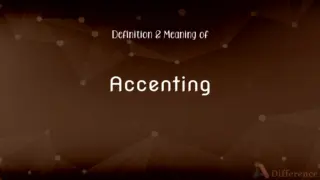
Previous Term
Accenting Definition and Meaning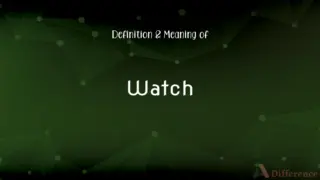
Next Term
Watch Definition and MeaningAuthor Spotlight
Written by
Urooj ArifUrooj is a skilled content writer at Ask Difference, known for her exceptional ability to simplify complex topics into engaging and informative content. With a passion for research and a flair for clear, concise writing, she consistently delivers articles that resonate with our diverse audience.
Co-written by
Fiza RafiqueFiza Rafique is a skilled content writer at AskDifference.com, where she meticulously refines and enhances written pieces. Drawing from her vast editorial expertise, Fiza ensures clarity, accuracy, and precision in every article. Passionate about language, she continually seeks to elevate the quality of content for readers worldwide.









